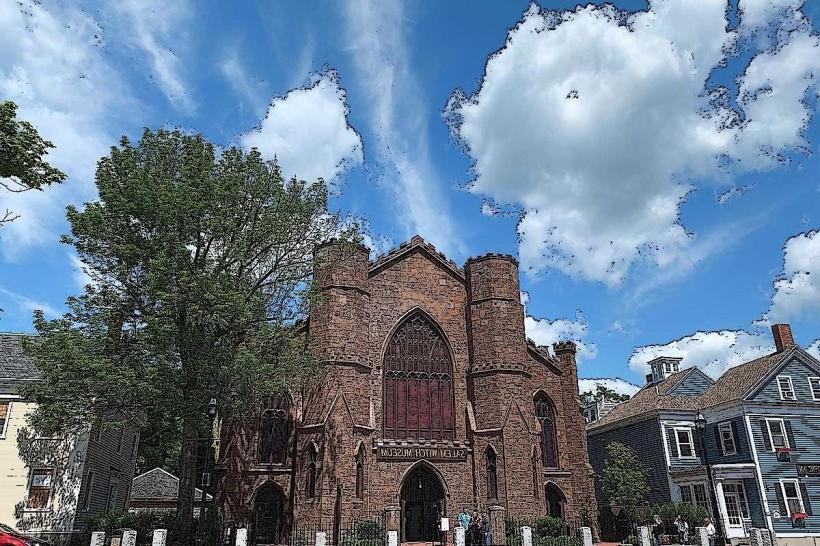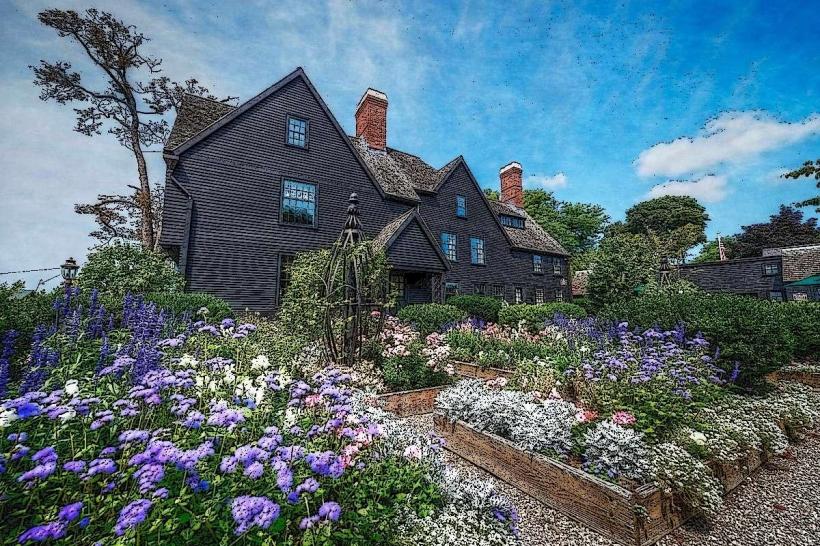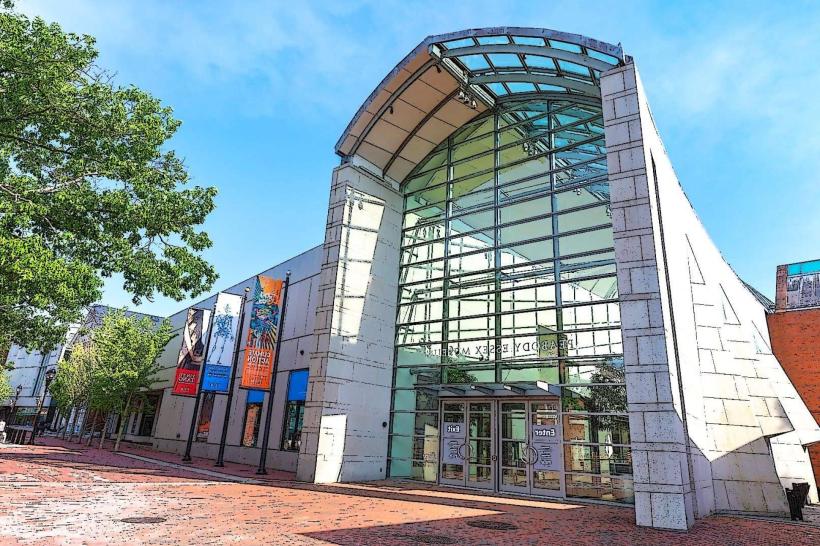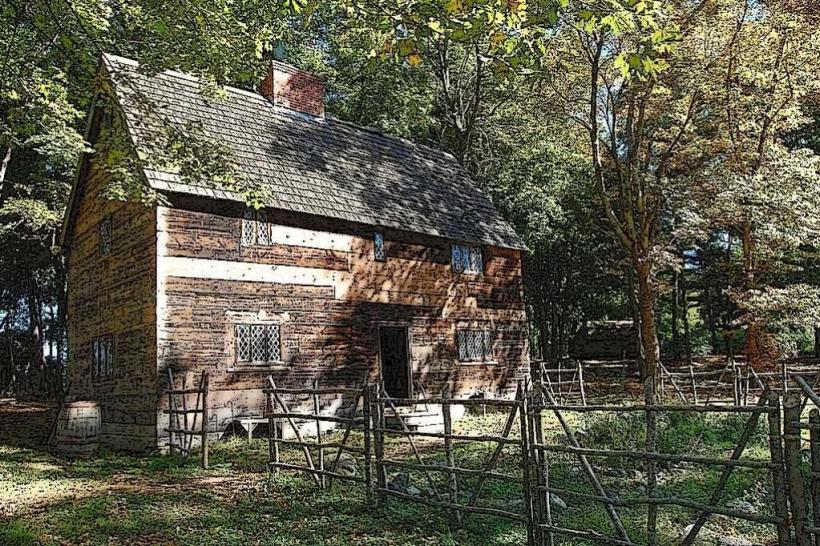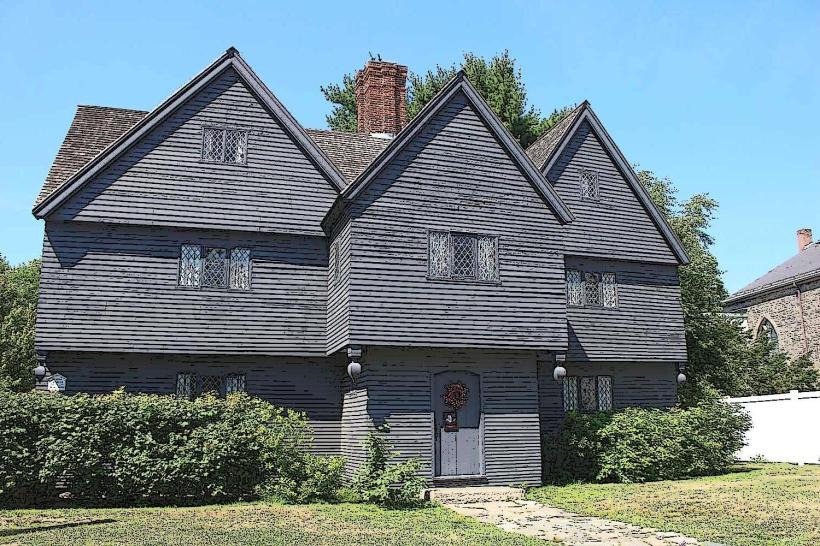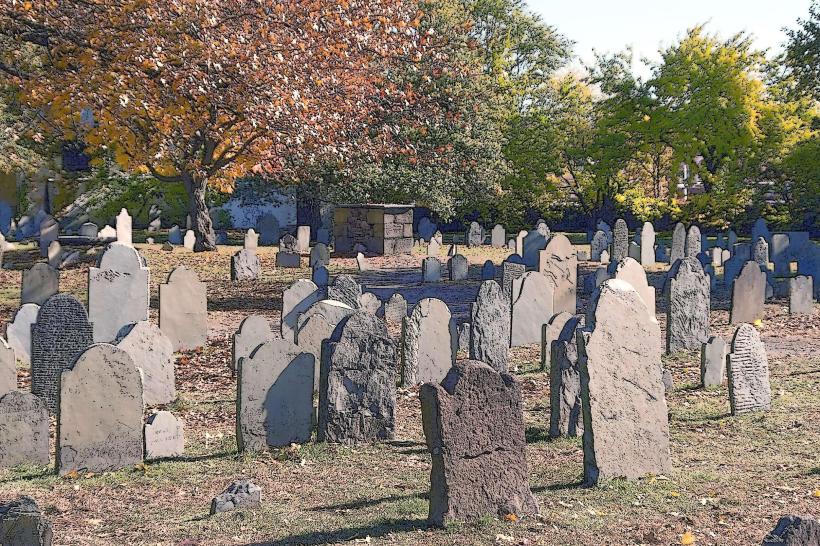Information
Landmark: Ropes MansionCity: Salem MA
Country: USA Massachusetts
Continent: North America
Ropes Mansion, Salem MA, USA Massachusetts, North America
Ropes Mansion – In Detail
The Ropes Mansion, located at 318 Essex Street in Salem, Massachusetts, is a pristine example of Georgian Colonial architecture and a significant historic house museum. Built around 1727 and later remodeled in the 1830s, the mansion was home to generations of the Ropes family, prominent figures in Salem's legal, mercantile, and civic circles. Now operated by the Peabody Essex Museum (PEM), it is open to the public seasonally and offers a glimpse into Salem’s upper-class domestic life in the 18th and 19th centuries.
Architectural and Historical Background
Construction Date:
The house was originally constructed in the 1720s, possibly by merchant Samuel Barnard, and later purchased by Judge Nathaniel Ropes Jr., who gave the mansion its enduring name.
Georgian Design:
The symmetrical façade, wood-frame construction, large central chimney, multi-pane sash windows, and classical pedimented entryway exemplify classic Georgian Colonial style, which emphasized balance, proportion, and restrained ornamentation.
Greek Revival Renovation (1830s):
Later renovations added Greek Revival touches, including a more formal front portico, expanded interior spaces, and stylistic refinements that reflect changing tastes in the 19th century.
Ropes Family Legacy
Nathaniel Ropes Jr.:
A loyalist judge during the Revolutionary period, Ropes was an unpopular figure among Patriots. In 1774, a mob gathered at the house to protest his political stance. During the riot, Ropes-already ill with smallpox-died inside, adding a layer of eerie folklore to the home's history.
Generational Wealth and Influence:
Later generations of the Ropes family were successful merchants, shipowners, and philanthropists. Their wealth and refined taste are reflected in the home's interiors and furnishings.
Final Resident and Legacy:
In 1907, the final Ropes family resident, Sarah Ropes, bequeathed the home and its contents to the public. She stipulated it should become a museum, preserving the family’s legacy and lifestyle for future generations.
Interior and Museum Features
Period Rooms:
The mansion has been meticulously restored and furnished with original Ropes family possessions, including:
18th and 19th-century fine furniture, much of it Salem-made
Chinese export porcelain
Silverware, textiles, and decorative arts
Authentic wallpaper, carpets, and lighting fixtures from the Federal and Victorian periods
Domestic Life Interpretation:
The house serves as a window into how an affluent Salem family lived across generations. It covers social customs, women’s roles, interior design trends, and technological changes (such as indoor plumbing and heating).
Self-Guided Tours:
The museum is open seasonally with self-guided access, and educational signage in each room provides context. Period-costumed interpreters are sometimes available for questions.
Ropes Garden – A Highlight
Formal Colonial Revival Garden:
Located behind the mansion, the Ropes Mansion Garden was designed in the early 20th century by landscape architect John Robinson, with input from the renowned Gertrude Jekyll.
Layout and Features:
The garden features symmetrical flower beds, trellised walkways, brick paths, and lush plantings such as roses, lilacs, peonies, and boxwood hedges. It's especially popular in spring and summer and is open daily to the public year-round, free of charge.
Atmosphere:
This tranquil garden serves as both a visual delight and a peaceful retreat from the city’s bustle. It is frequently used for photography, small events, and quiet reflection.
Popular Culture
Hocus Pocus Film Location:
The Ropes Mansion famously appeared in the 1993 Disney film Hocus Pocus, where it served as the fictional home of Allison, one of the film’s main characters. This connection draws many film fans, especially during the Halloween season.
Visitor Information
Location: 318 Essex Street, centrally located on the Salem Heritage Trail and walkable from many downtown attractions.
Admission:
The garden is free and open year-round.
The house museum is free as well and typically open on weekends from spring through fall. Hours may vary by season and are managed by the Peabody Essex Museum.
Accessibility:
The garden is wheelchair accessible. The mansion’s historic structure includes stairs and narrow doorways, which may limit accessibility in some areas.
Summary
The Ropes Mansion is more than just an elegant historic home-it’s a tangible link to the layered past of Salem. With its well-preserved Georgian architecture, original family furnishings, and charming garden, the mansion offers a vivid portrait of upper-class New England life over two centuries. Whether you're drawn by its history, aesthetics, or cinematic fame, the Ropes Mansion provides a quiet yet powerful experience in one of America's most storied cities.

